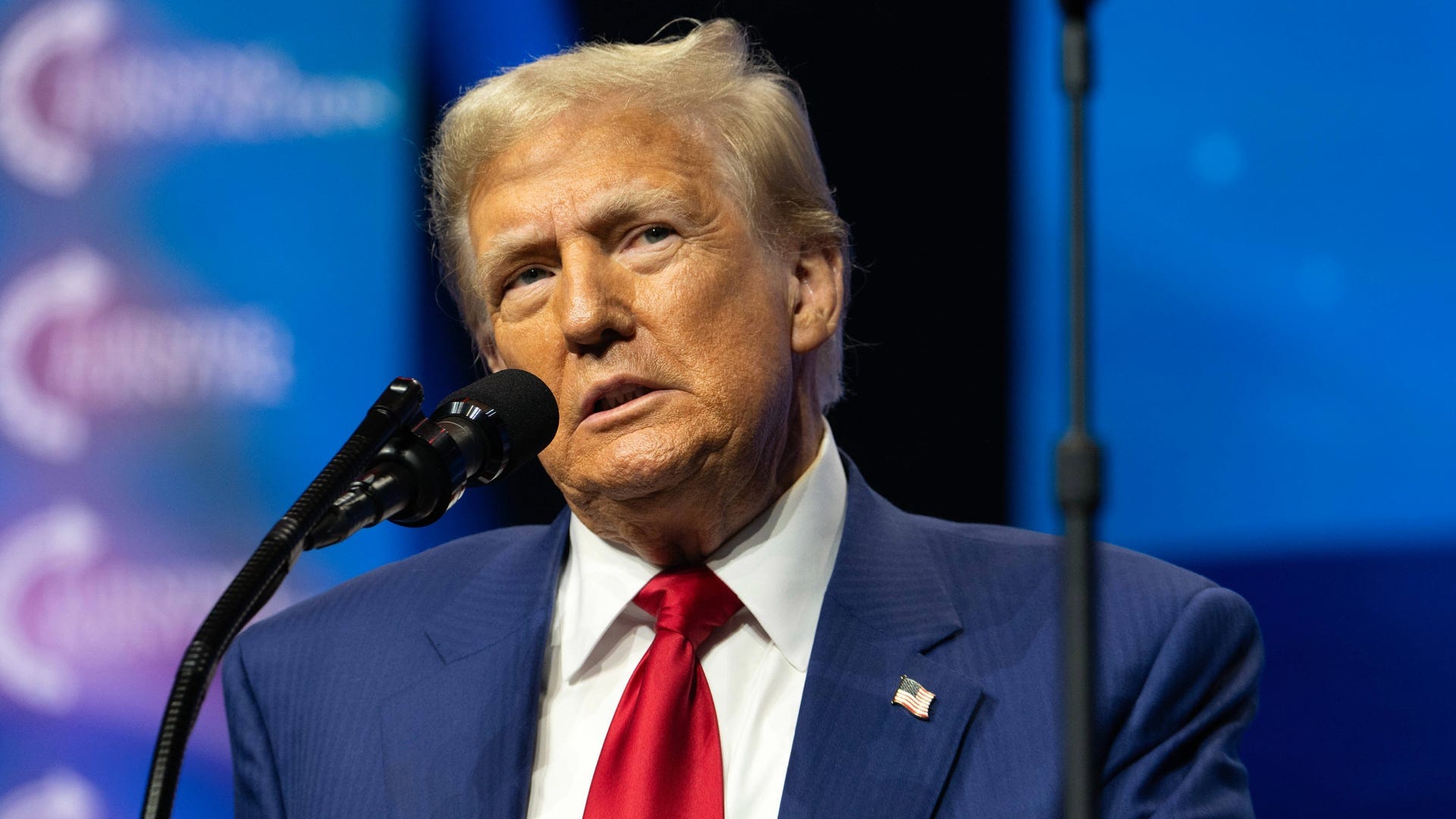What is birthright citizenship? Can Trump get rid of it? What to know about executive order

During his 2024 presidential campaign, President Donald Trump stated he wanted to end birthright citizenship and on Inauguration Day he signed an executive order to do just that. But can he?
The executive order was just one of a slew of measures the returning president sat down to sign just hours Monday after taking the oath of office in the Capitol Rotunda in Washington, D.C. This one specifically aims at ending automatic citizenship for U.S.-born children of immigrants in the country illegally. It's another tool for Trump's administration to target immigrants and ties into another campaign promise of mass deportation of immigrants who are in the United States illegally.
"The federal government will not recognize automatic birthright citizenship for children of illegal aliens born in the United States. We are also going to enhance vetting and screening of illegal aliens," said a Trump official in a briefing on Monday.
While it may have fulfilled one of his campaign promises, it may not be able to stand. Why? Because birthright citizenship is enshrined in the Constitution.
What is birthright citizenship? Is it in the Constitution?
Birthright citizenship grants automatic citizenship for U.S.-born children of immigrants in the country and is enshrined in the 14th Amendment.
Here's how Section 1 of the 14th Amendment reads, according to constitution.congress.gov:
"All persons born or naturalized in the United States, and subject to the jurisdiction thereof, are citizens of the United States and of the State wherein they reside. No State shall make or enforce any law which shall abridge the privileges or immunities of citizens of the United States; nor shall any State deprive any person of life, liberty, or property, without due process of law; nor deny to any person within its jurisdiction the equal protection of the laws."
Can Trump end birthright citizenship with an executive order?
It comes down to how the legal battle(s) turn out.
While birthright citizenship is part of the Constitution and an amendment can only be changed through a new constitutional amendment. To do that either a joint resolution passed by two-thirds of both the House of Representatives and the Senate, or a convention called by Congress in response to two-thirds of state legislatures requesting one is required.
Trump's executive order doesn't look to change the 14th Amendment, but to reinterpret it so that a large part of the people it once applied to would not be granted citizenship under it. It comes down to a specific line, "subject to the jurisdiction thereof," which was interpreted by the U.S. Supreme Court to mean that children of "citizens or subjects of foreign states" were not eligible for citizenship.
Under Trump's order, this would now also include people born in the U.S.:
- When that person’s mother was unlawfully present in the United States and the father was not a United States citizen or lawful permanent resident at the time of said person’s birth, or
- When that person’s mother’s presence in the United States at the time of said person’s birth was lawful but temporary (such as, but not limited to, visiting the United States under a Visa Waiver Program or on a student, work, or tourist visa) and the father was not a United States citizen or lawful permanent resident at the time of said person’s birth.
Have any lawsuits been filed against Trump's executive order?
Yes.
The American Civil Liberties Union, along with other immigrant and civil rights advocates, have already filed a lawsuit challenging the executive order. Additionally, a coalition of 18 states sued Trump in U.S. District Court in Massachusetts over the measure.
“Denying citizenship to U.S.-born children is not only unconstitutional — it’s also a reckless and ruthless repudiation of American values. Birthright citizenship is part of what makes the United States the strong and dynamic nation that it is," Anthony D. Romero, executive director of the American Civil Liberties Union, said in a statement. "This order seeks to repeat one of the gravest errors in American history, by creating a permanent subclass of people born in the U.S. who are denied full rights as Americans.”
Even before Trump signed the order, he knew that it might not be possible to get rid of birthright citizenship through the executive order, according to statements made during NBC's "Meet the Press" interview last month.
Which states are suing Trump over birthright citizenship?
The plaintiffs against Trump's birthright citizenship executive order include:
- New Jersey
- Massachusetts
- California
- Colorado
- Connecticut
- Delaware
- Hawaii
- Maine
- Maryland
- Michigan
- Minnesota
- Nevada
- New Mexico
- New York
- North Carolina
- Rhode Island
- Vermont
- Wisconsin
Do other countries have birthright citizenship?
Trump has claimed that the United States is the only country that has birthright citizenship.
"We'll maybe have to go back to the people," he said during the "Meet the Press" interview. "But we have to end it. We're the only country that has it, you know."
This is not true.
Currently, 65 countries have some form of birthright citizenship and 33, including the U.S., have unrestricted birthright citizenship, according to worldpopulationreview.com.
C.A. Bridges of The Palm Beach Post contributed to this report.